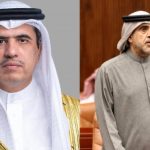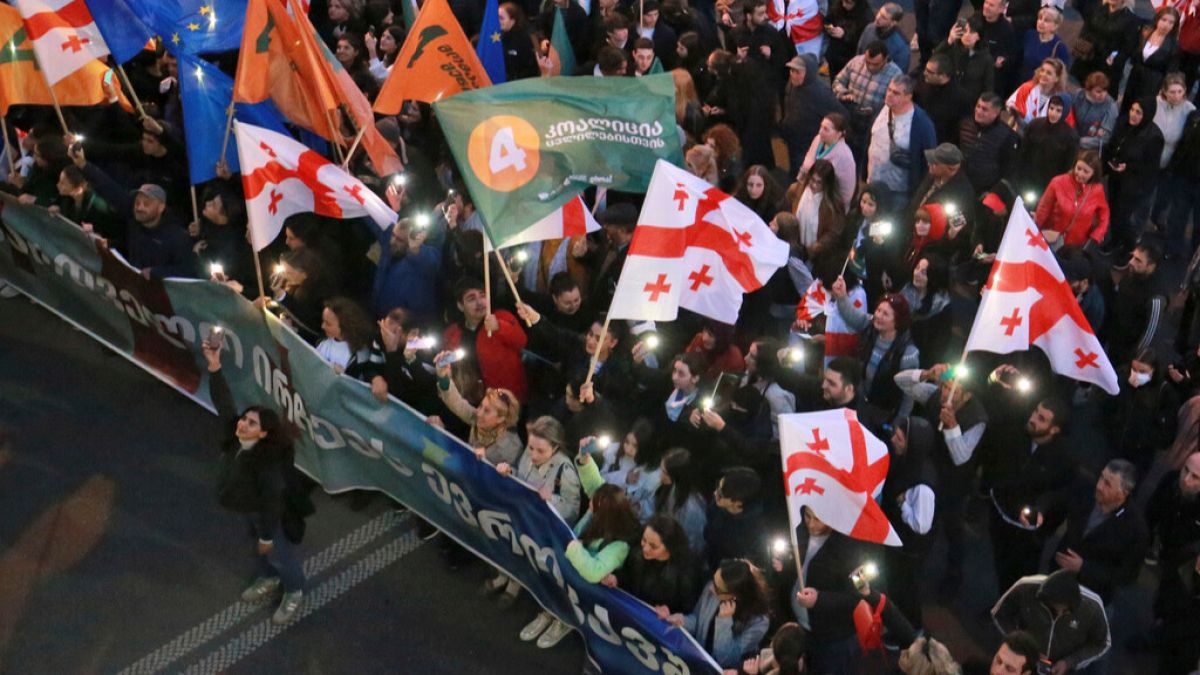The upcoming parliamentary elections in Georgia have garnered attention as a crucial moment for democracy in the country. Activists are pushing for the removal of the ruling party, Georgian Dream, which they view as being aligned with Russia. The elections, set to take place on Saturday, are being framed as a choice between aligning with Europe or Russia. The ruling party is facing opposition from four main parties, all of which have signed a call to action from President Salome Zourabichvili to help remove Georgian Dream from power. Critics of Georgian Dream cite controversial legislation and actions that have eroded the trust of the people, including a bill that has been compared to Russian laws and a restrictive bill against the LGTBQ+ community.
The ruling party, Georgian Dream, led by billionaire Bidzina Ivanishvili, has defended its policies by stating that they prioritize peace with Russia and a pragmatic approach to foreign relations. They argue that the current elections are a choice between peace and the risk of reigniting tensions with Russia. The party’s leaders have also promised to reset relations with the EU and work towards Georgia joining the bloc on its own terms. Despite criticism from the opposition and activists, Georgian Dream remains confident in their pro-European stance and aims to join the EU by 2030. However, critics and opposition parties are calling for a change in leadership to steer the country towards a more pro-European direction.
Opinion polls leading up to the elections have shown mixed results, with several different predictions from various sources. Georgian Dream is currently leading in the polls but may fall short of a majority, according to a recent survey. The Coalition for Change, the second-largest party in the polls, is focusing on forming a coalition government that would prioritize democratic reforms and opening discussions with the EU. The United National Movement, the third-largest party, is also open to forming a coalition to remove Georgian Dream from power. Despite the challenges and obstacles, the opposition parties are determined to work together to bring about change in the upcoming elections.
The pro-EU movement in Georgia has been strong for decades, with a majority of Georgians expressing a desire to join the European bloc. However, despite this widespread support, Georgian Dream managed to secure a third term in power in 2020. The introduction of controversial legislation such as the foreign agents bill and the stalling of EU accession have led to a decline in the ruling party’s popularity. Critics argue that choosing Georgian Dream means maintaining the current status quo and foregoing Georgia’s European future. Concerns about voter intimidation, limited polling stations for Georgian diaspora, and potential interference from Russia loom over the upcoming elections.
The European Parliament has confirmed that the elections in Georgia will be monitored by domestic and international observers to ensure transparency and fairness. Polls will open on Saturday, with a clear picture of results expected by early Sunday morning. The party with the most votes will have the opportunity to form a government, with the president overseeing the process. If Zourabichvili’s Georgian Charter holds, Georgian Dream may be unable to form a coalition due to the refusal of other parties to work with them. The outcome of the elections remains unpredictable, and the next steps for Georgian Dream if they fail to secure a majority are uncertain.
In conclusion, the upcoming parliamentary elections in Georgia are poised to be a pivotal moment for the country’s future direction. With activists and opposition parties pushing for a change in leadership away from the ruling Georgian Dream party, the elections have become a battleground for democracy and European integration. The outcome of the elections remains uncertain, but one thing is clear – Georgians are eager to shape their country’s future and align it with Europe. As the polls open on Saturday, the eyes of the nation and the international community will be on Georgia to see what path it chooses to take.











